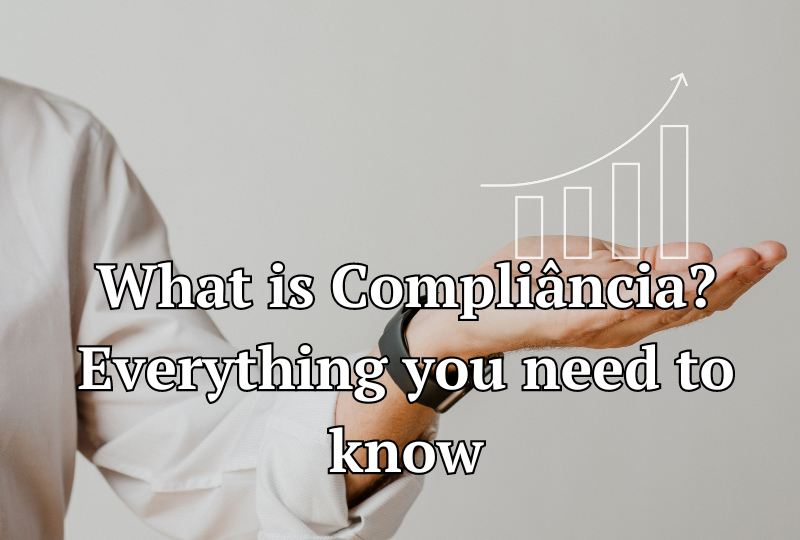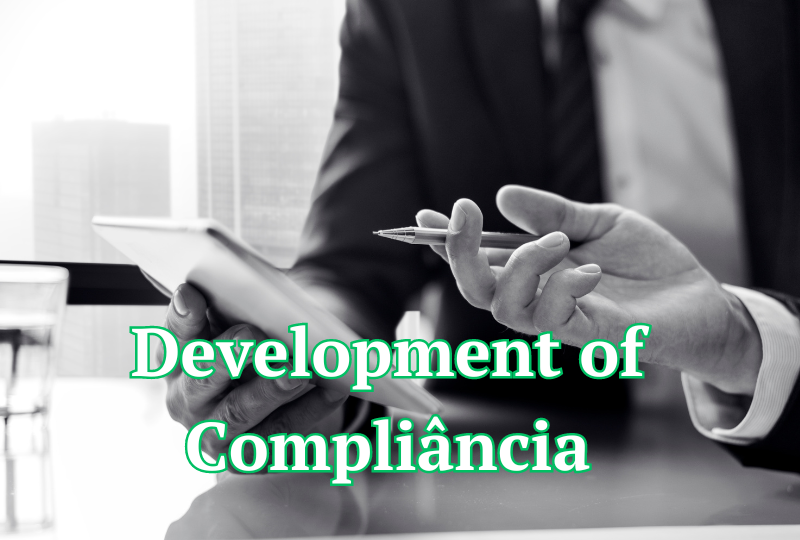FOR SALE
+92-300-1900991
FOR SALE
+92-300-1900991


As a professional Compliância, you need to understand the concept of compliments and why it’s important. Compliance refers to the policies, procedures, and controls implemented by an organization to ensure compliance with laws, regulations, and ethical standards. For any business, compliance is crucial to avoid legal issues, financial penalties, and reputational damage.
This article provides an overview of the most important information you need to know about compliance, including the types of compliance programs, how to design and implement an effective program, and best practices for monitoring compliance in your organization. With the right approach, you can create a powerful system of compliments that guides your business and your employees.
Compliance refers to adherence to rules, guidelines, standards, or laws. In short, it adheres to certain guidelines.For organizations, compliance means establishing and adhering to procedures and controls to ensure the integrity of business operations and compliance with industry laws and regulations. This includes areas such as:
Governance: organizational structure, responsibilities, rights, and responsibilities in decision-making Policies and procedures that govern conduct and business activities
Risk management is the process of identifying, assessing, and mitigating risks that may impact the achievement of objectives. Risk management in the context of the organization’s risk appetite.
Regulatory Compliance: Adhere to all applicable laws, rules, and industry guidelines. Make sure that policies and guidelines abide by the law.
Ethics and Integrity: Promoting a culture of integrity, ethical values, and behaviors Prevention and detection of misconduct and illegal activities
Information Governance: Policies and Procedures for Managing Data and Information as Assets Protection of sensitive and confidential information
For the individual, a compliment means understanding and following the rules of conduct and action. This includes adherence to the organization’s code of conduct and compliance policies, as well as relevant laws and regulations. If you don’t, you risk facing disciplinary and legal action.
In short, compliance is vital for good organizational management and ethical behavior. It provides a framework for operational effectiveness, risk mitigation, and maintaining stakeholder trust. Compliance should not be seen as a burden, but as a means to ensure responsible and sustainable business practices.

Regulatory compliance has always been a crucial aspect of doing business to ensure that companies comply with laws and regulations. But as time went on, the idea of compliance changed, giving rise to a fresh strategy called compliância.
Compliância goes beyond simply following rules and regulations. It aims to create a culture of ethical behavior and responsible decision-making in the organization. This change in mentality reflects the changing dynamics of today’s business landscape.
In the past, compliance was often seen as a selection process in which companies merely fulfilled their obligations. However, this approach has proven insufficient to address complex issues such as fraud, corruption, and data breaches.
As companies came under increasing scrutiny from regulators and stakeholders demanding greater transparency and accountability, there was a need for a more holistic approach to compliance. This led to the evolution towards compliance, an approach that not only emphasizes adherence to rules but also actively promotes ethical behavior at all levels of the organization.
Compliância understands that compliance is the responsibility of all employees of the company, from senior management to frontline workers. Particular attention is paid to education and training programs aimed at raising awareness of ethical standards and promoting active behavior.
In addition, compliância acknowledges that effective compliance measures are not limited to regulatory requirements but extend to areas such as data protection or environmental sustainability initiatives based on industry standards or best practices.
This move towards compliance is an advanced response from companies that want to stay ahead of the curve in today’s fast-changing business world. Through this holistic approach to compliance management, organizations can build trust with stakeholders while reducing the risks of non-compliance.
Read More : What is Ilimecomics?
There are many benefits to implementing compliance in your organization. This helps ensure that your business operates within the legal and regulatory framework set by the authorities. This not only minimizes the risk of penalties and fines but also builds trust with customers and stakeholders.
In addition, compliância promotes transparency and accountability in your organization. By following compliance policies, you establish clear procedures and procedures that encourage ethical behavior and reduce the likelihood of fraud or corruption.
Compliância also contributes to the protection of sensitive data and information. With an effective compliance program, you can protect customer data, intellectual property, trade secrets, and other valuable assets from hacking or unauthorized access.
In addition, the application of compliments increases operational efficiency. Regulatory requirements often include streamlining processes and implementing best practices, which can lead to increased productivity and cost savings.
In addition, a strong focus on compliance creates a culture of integrity in your organization. When employees understand the importance of compliance and receive appropriate training on policies and regulations, they become more diligent in their actions.
Last but not least, improving reputation relies on implementing good compliance practices. Clients prefer to work with companies that prioritize ethics and responsibility – this can improve your brand image and attract new customers.
To implement an effective Compliância program, you need to follow a few basic steps:
Start by conducting a risk assessment to identify compliance vulnerabilities in your organization. Pay attention to issues such as bribery, corruption, privacy, security, and labor law. Analyze the likelihood and impact of risks to prioritize them.
Develop clear policies and procedures to address key risks. They should be easy to understand and follow. Spread the news about them throughout the company through training and make it available for reference.
Regular compliance training for all employees. This helps ensure that everyone understands their obligations and the possible consequences of their non-compliance. To adapt to change, continuous learning is necessary.
Monitor and verify compliance to ensure policies are being adhered to. Watch out for red flags that may indicate breaches or new risks. Take corrective action if necessary. Independent third-party audits can also provide an objective assessment.
Provide mechanisms for employees to report suspected violations confidentially. Investigate all reports immediately and take appropriate action. Retaliation against whistleblowers should be banned.
Ensure that appropriate disciplinary action is followed in the event of violations. Maintain consistent policies to make it clear that compliance is an expectation, not a possible requirement. The penalties must be proportionate to the seriousness of the infringement.
Shopping Now : Black BACKLESS FOOTWEAR
Regular evaluation and review of the program to improve its effectiveness. Get feedback from employees and look for ways to streamline processes. Update to reflect changes in laws and regulations, risks, and industry practices.
A well-thought-out compliância program with the support of the entire organization is key to avoiding legal problems, fines, and reputational damage. Make the effort to create a comprehensive program in advance, and then carefully monitor and enforce compliance to ensure compliance comes first.
What are the most important areas of compliance?
Compliance areas include legal, financial, industry-specific, and regulatory requirements.
How can I assess my organization’s eligibility?
To find compliance gaps, do routine risk assessments and audits.
What are the consequences of non-compliance?
Failure to comply can result in fines, lawsuits, reputational damage, and business interruption.
Is regulatory compliance a one-time expense?
No, compliance is an ongoing process that requires constant monitoring and adjustment.
How can small businesses ensure compliance?
Small businesses can seek expert advice, use compliance software, and keep up to date with relevant regulatory requirements.
Are there any international compliance standards?
Yes, some standards, such as ISO 9001 and ISO 27001, are internationally recognized.
Compliância is not just a buzzword; This is a fundamental aspect of responsible business conduct. By prioritizing compliance, you’ll protect your business, build trust, and stay competitive in an increasingly regulated world. Stay informed, get expert advice, and cultivate a culture of compliments to ensure your success.
[…] Read More: What is compliance? […]
[…] What is compliance? […]
[…] What is Compliância? Everything you need to know […]